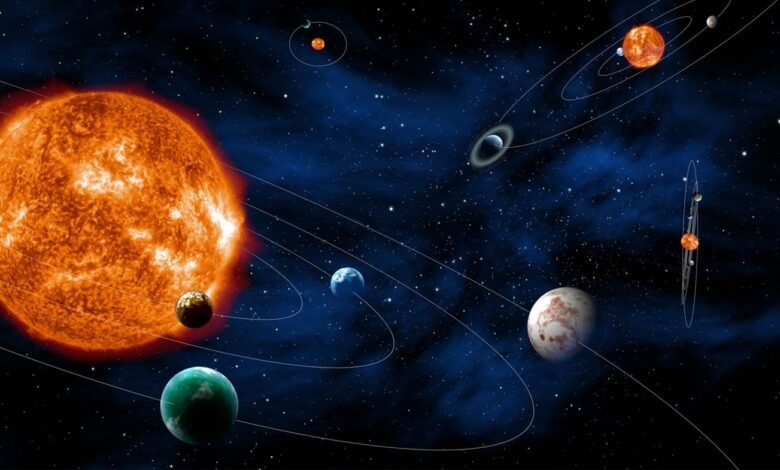10 Mind-Blowing Discoveries That Will Change the Way You Think About Science

10 Mind-Blowing Discoveries
Science is a fascinating and ever-evolving field that has brought about many amazing discoveries that have changed the way we view the world around us. From the smallest atoms to the largest galaxies, science has helped us understand the mysteries of our universe. In this article, we will delve into 10 mind-blowing discoveries that have revolutionized our understanding of science and challenged our assumptions about the world.
-
The Discovery of the Higgs Boson Particle
In 2012, physicists at the European Organization for Nuclear Research (CERN) announced the discovery of the Higgs Boson particle, a subatomic particle that had been theorized to exist for over 50 years. The discovery was a major breakthrough in the field of particle physics, as it helped explain how particles gain mass and why some particles have no mass at all.
-
The Theory of General Relativity
Albert Einstein’s theory of general relativity, published in 1915, revolutionized the field of physics and provided a new understanding of gravity. According to Einstein’s theory, gravity is not a force but rather a curvature in spacetime caused by the presence of mass and energy. This theory has been confirmed through numerous experiments and observations, including the recent detection of gravitational waves.
-
The Human Genome Project
Completed in 2003, the Human Genome Project was a massive international effort to sequence the entire human genome. The project provided a wealth of information about the human body, including insights into the genetic basis of diseases and the evolution of humans as a species.
-
The Discovery of Dark Matter
Dark matter is a mysterious substance that makes up the majority of the matter in the universe, yet it cannot be directly observed. Its existence was first inferred through observations of the gravitational effects it has on visible matter. This discovery has revolutionized our understanding of the universe and continues to be an active area of research.
-
The Theory of Plate Tectonics
The theory of plate tectonics, first proposed in the 1960s, explains how the Earth’s surface is composed of large, moving plates that interact with one another. This theory has helped explain many geological phenomena, including the formation of mountains and the occurrence of earthquakes and volcanic eruptions.
-
The Discovery of DNA
In 1953, James Watson and Francis Crick discovered the structure of DNA, the molecule that carries genetic information in all living things. This discovery has had profound implications for our understanding of biology and has led to advances in fields such as medicine and genetic engineering.
-
The Discovery of the Big Bang
The Big Bang theory, first proposed in the 1920s, explains how the universe began as a single point and has been expanding ever since. This theory has been supported by numerous observations and experiments, including the recent discovery of cosmic microwave background radiation.
-
The Discovery of Antibiotics
The discovery of antibiotics, beginning with the discovery of penicillin in 1928, has revolutionized medicine and saved countless lives. Antibiotics are drugs that kill or inhibit the growth of bacteria, and they have been used to treat a wide range of infections and diseases.
-
The Discovery of the Structure of the Atom
In the early 20th century, scientists such as Ernest Rutherford and Niels Bohr discovered the structure of the atom, which consists of a small, positively charged nucleus surrounded by negatively charged electrons. This discovery has had profound implications for our understanding of chemistry and physics.
-
The Theory of Evolution by Natural Selection
Charles Darwin’s theory of evolution by natural selection, published in 1859, provided a new understanding of how species evolve over time. According to Darwin’s theory, organisms that are better adapted to their environment are more likely to survive and reproduce, leading to the evolution of new species overtime. This theory has been supported by numerous observations and has had a profound impact on our understanding of biology and the history of life on Earth.
Read More:The Science Behind Procrastination: How to Overcome It Once and For All in 2023
Conclusion:
these 10 mind-blowing discoveries have fundamentally changed the way we think about science and the world around us. From the smallest subatomic particles to the largest structures in the universe, science has helped us unravel the mysteries of our universe and make sense of our place in it. As we continue to explore and discover, we can look forward to even more mind-blowing breakthroughs that will challenge our assumptions and push the boundaries of what we know.











